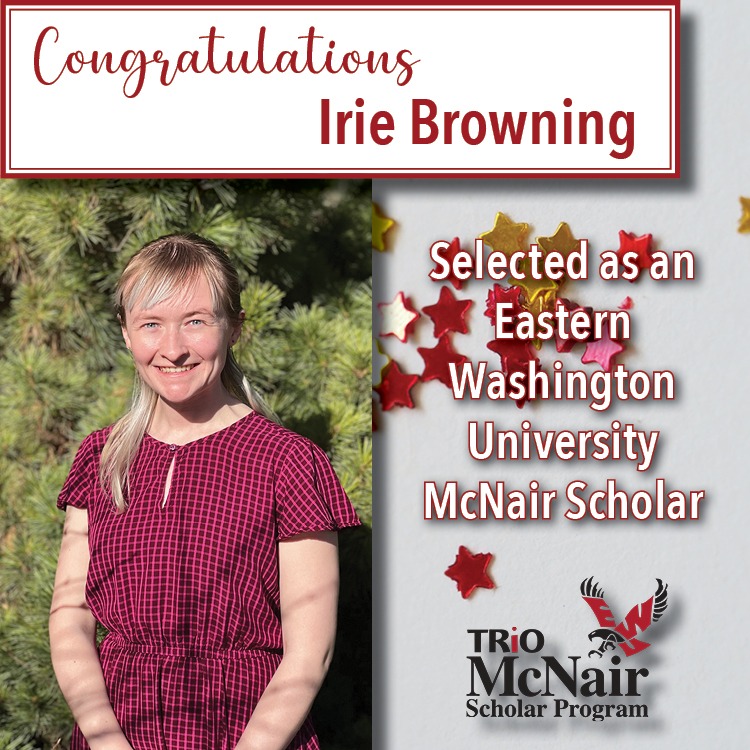Irie Browning
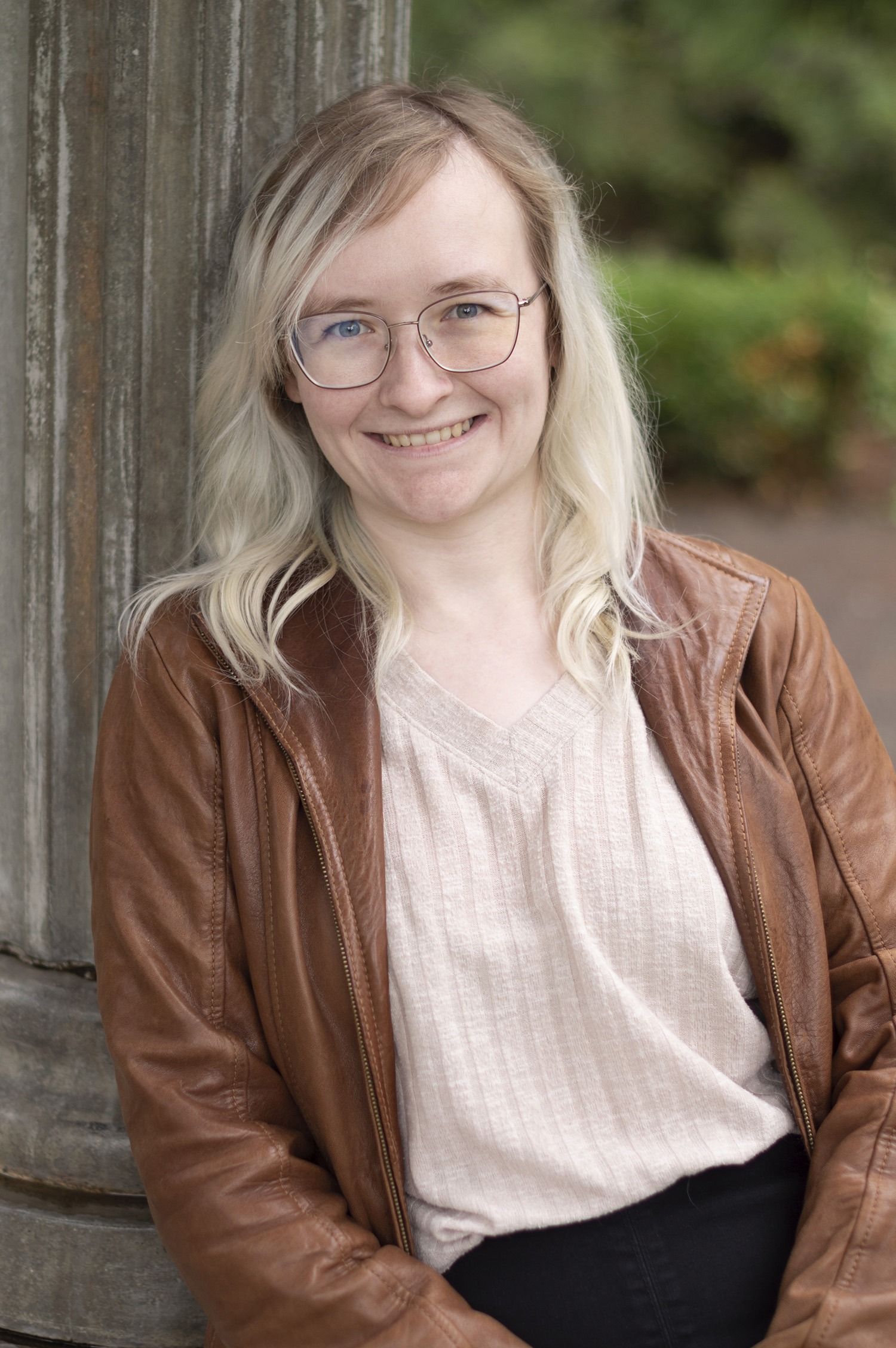
Irie Browning is an undergraduate at Eastern Washington University pursuing a major in Philosophy and a minor in English Literature. Though she finds nearly every aspect of philosophy fascinating, her areas of special interest are literary ethics, action theory, American pragmatism, and ancient Greek philosophy (particularly the works of Aristotle). She is a past president and current active member of EWU’s Philosophy Club and works as an Academic Coach with the Program Leading to University Success. Her most recent presentations have been “Democracy & Dragons: Deliberation and Inquiry through Collaborative Storytelling in Dungeons & Dragons,” a Capstone research project presented in different forms at EWU’s Philosophy Club in May 2023 and the Southwest Popular/American Culture Association Summer Salon in June 2023, and “The Telos of a Table: An Aristotelean Reflection on the Meaning of Crafted Objects,” presented at EWU’s 2023 Student Research and Creative Works Symposium.
Irie’s first McNair Summer Research Internship, under the mentorship of Dr. Christopher C. Kirby, examined John Dewey’s Pattern of Inquiry and how it could be applied to inspire a greater passion for learning in college freshmen. In Summer 2023 Irie and Dr. Kirby diversified their inquiries, this time in virtue ethics as it applies to friendship. Her project proposes a philosophy of hope and love as a path forward in our hyper-individualized modern culture.
When she is not reading and writing philosophy, Irie enjoys playing Dungeons & Dragons, reading and writing stories and poetry, and having conversations around the dining table with her friends.
2023 EWU Faculty Research Mentor: Dr. Christopher Kirby
Research Title: Friendship and Virtue Ethics
Abstract: Friendships—specifically character-friendships as described by Aristotle—are necessary for the ethical good life, yet such friendships are difficult to achieve in the modern world. The cultural value of authenticity at all costs centralizes self-reliance in the revelation of an a priori inner self. Though authenticity is not fully negative, the authentic self is built by one’s relationships with others, and not revealed as a pre-standing truth. Character friendships—where I choose you because life is incomparably better together—are needed for this building of an authentic self, yet such friendships are not safe, or certain, or immune to the contingencies beyond one’s control that assail human existence. I propose that virtue ethics as moral education, aimed at the development of practical wisdom through and for friendships, allows the human agent an avenue for pursuit of the progressing good life with and for the friend and the self. Viewing moral education by way of virtue ethics as a way to create not a firm moral map, but instead an ethical compass, provides a future-hoping, present-applicable, past-aware pathway for utilizing phronesis (practical wisdom) in one’s friendships. It is a process; and I visualize this process as a process of desire, choice to pursue the desire, and development of practical wisdom through the choice, leading to the re-shaping of desire and so on. There is an element of both luck and danger when pursuing a friendship, but a perfectly safe life is neither possible nor a good life. Developing practical wisdom for and through friends is one way to navigate the pursuit of this good life.
2022 EWU Faculty Research Mentor: Dr. Christopher Kirby
Research Title: To Inspire Inquiry: A Deweyan Response to Neoliberalism in Higher Education
Abstract: Neoliberal structures in the modern university encourage competition and economic ends as the sole purpose of higher education. This is a structural problem which no one person can fix; however, a pragmatic view sees addressing conflict in trial and error as the process of democratic growth. Incorporating John Dewey’s method of inquiry and the means-ends continuum into a first-year experience course is one actionable method for improving the college experience towards a lifelong view of experience and education as opposed to the neoliberal model.
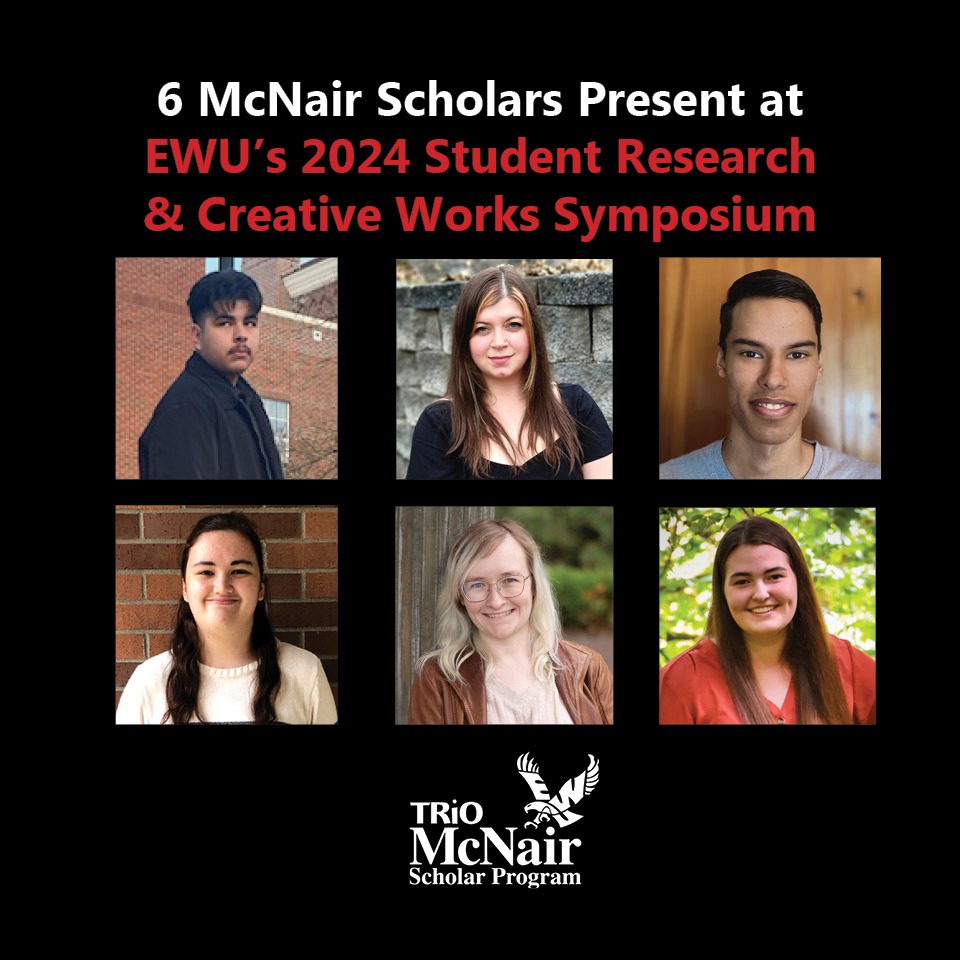
McNair Scholars Present at EWU’s 2024 Student Research & Creative Works Symposium

EWU McNair Scholar Irie Browning Receives the Frances B. Huston Medallion Award
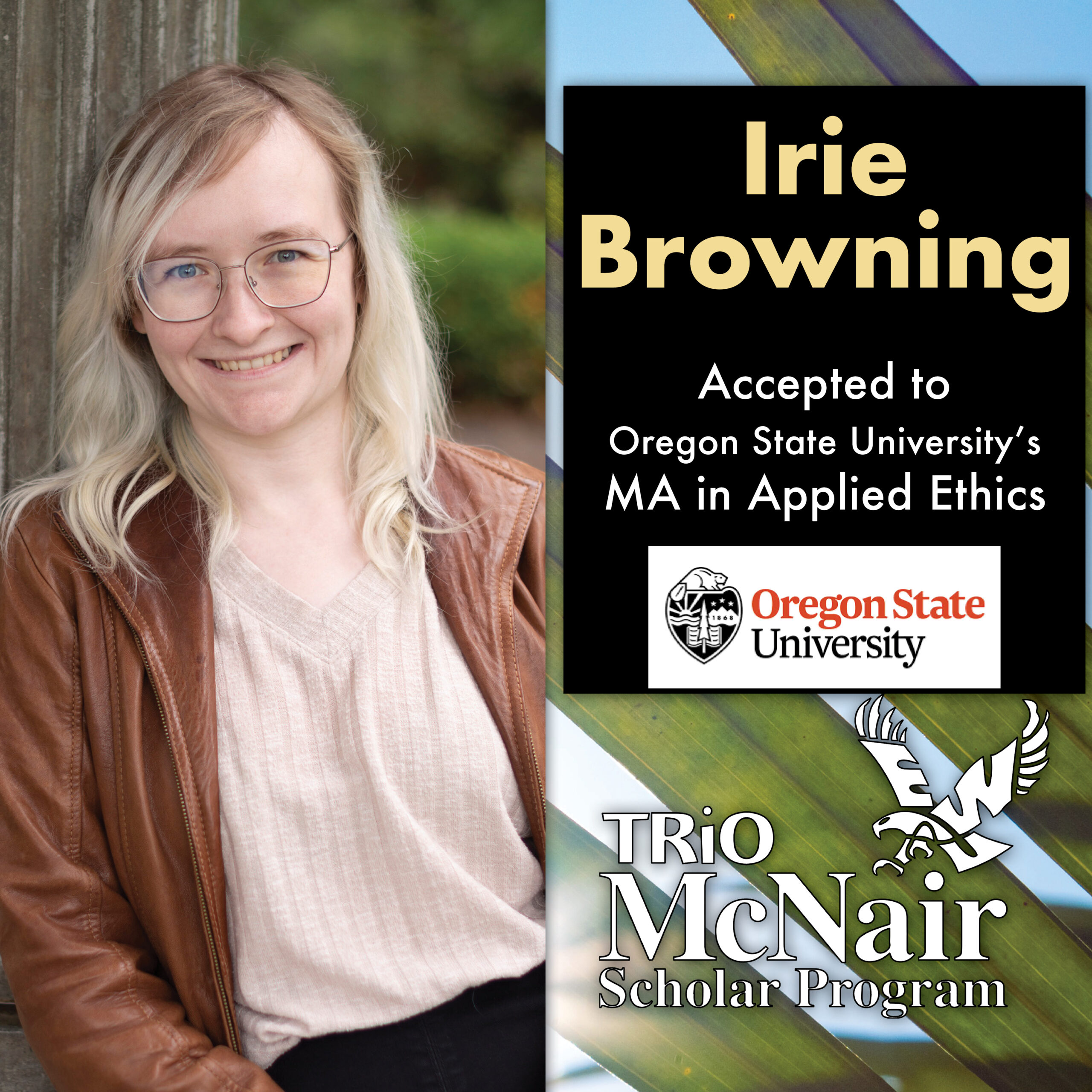
EWU McNair Scholar Irie Browning Accepted to Oregon State University Master’s Program in Applied Ethics
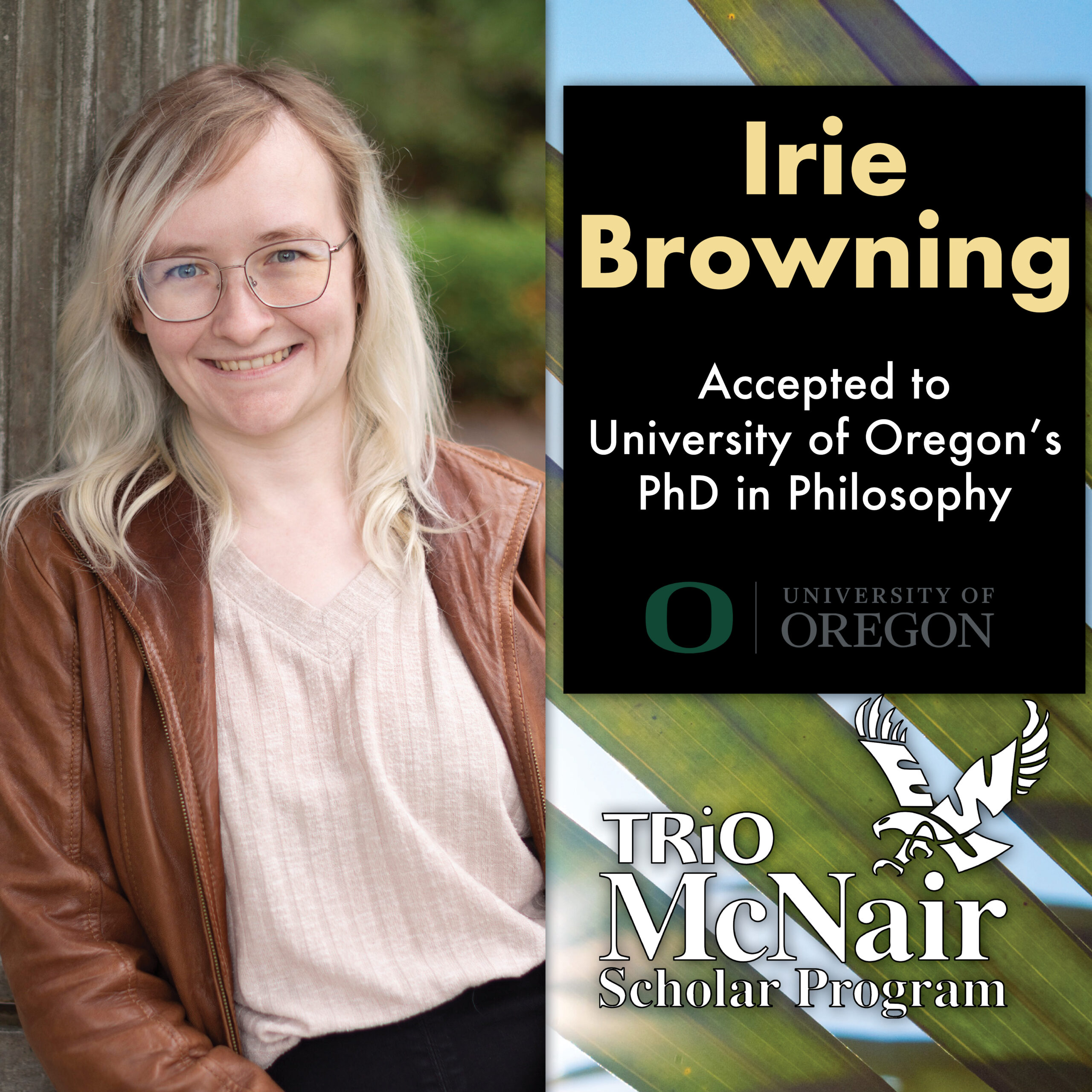
EWU McNair Scholar Irie Browning Accepted to University of Oregon PhD Program in Philosophy
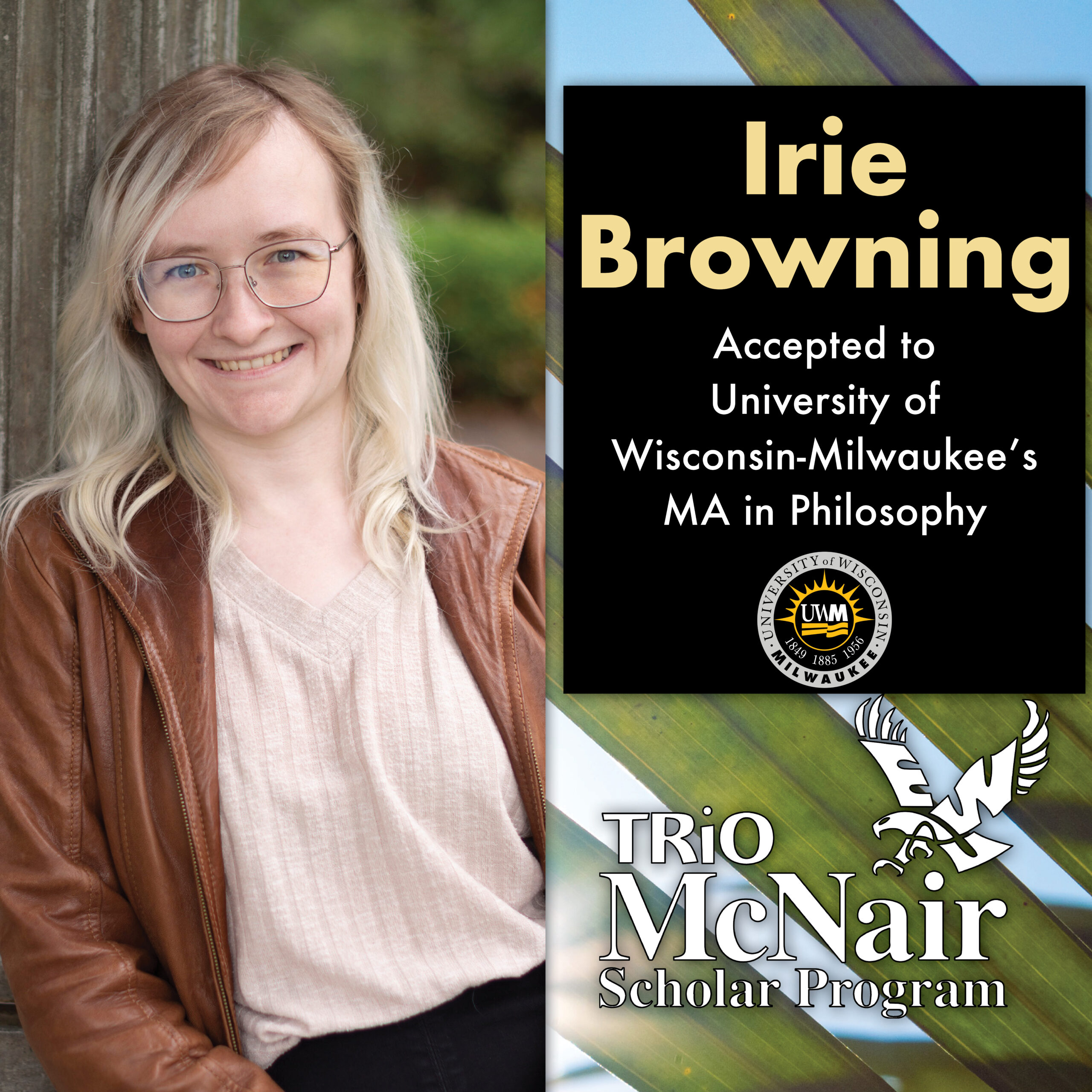
EWU McNair Scholar Irie Browning Accepted to University of Wisconsin-Milwaukee’s Masters in Philosophy
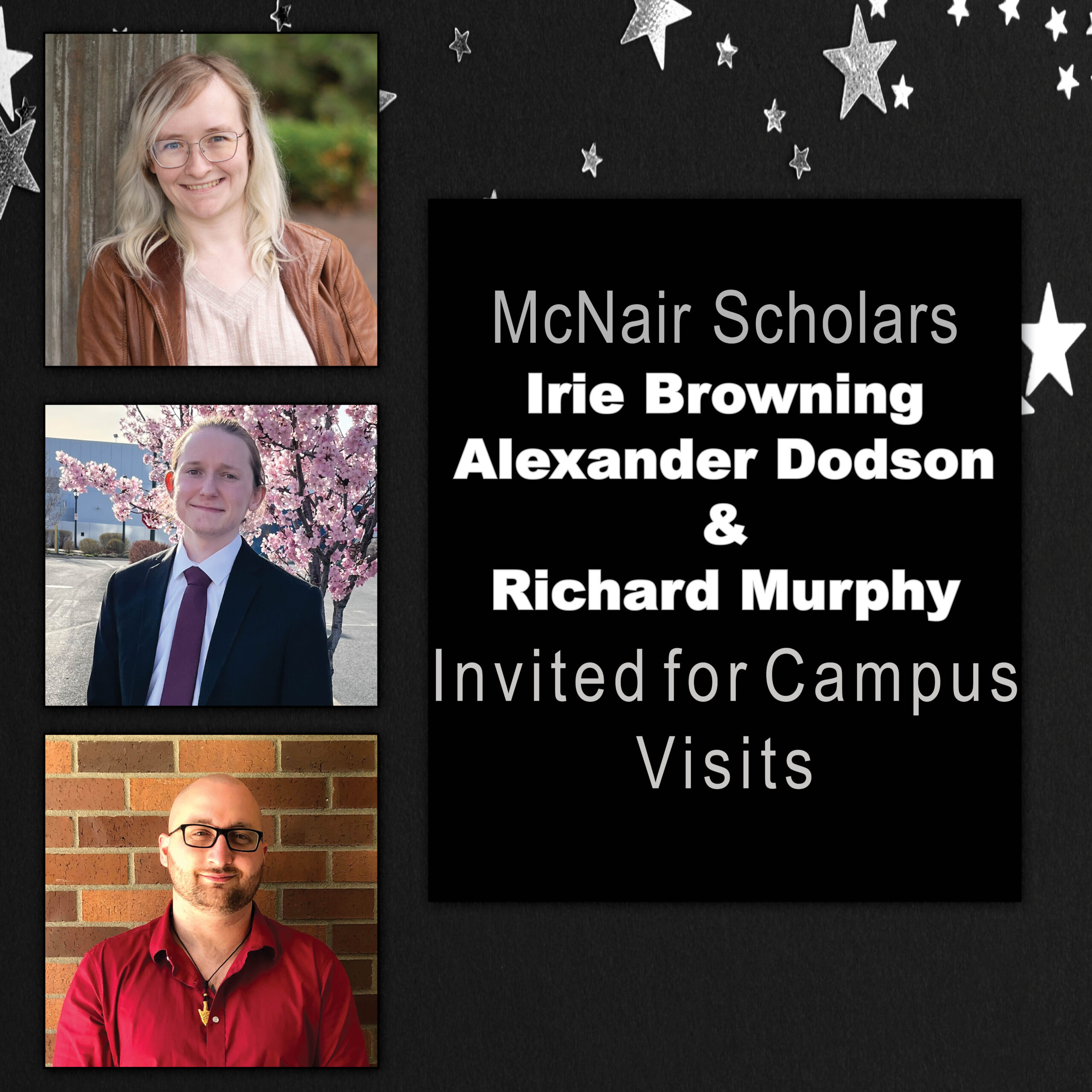
Graduating McNair Scholars Irie Browning, Alexander Dodson, and Richard Murphy Invited for Campus Visits
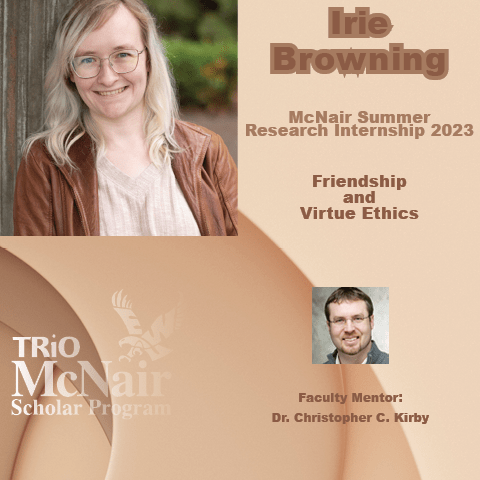
EWU McNair Scholar Irie Browning Completes Summer Research Internship
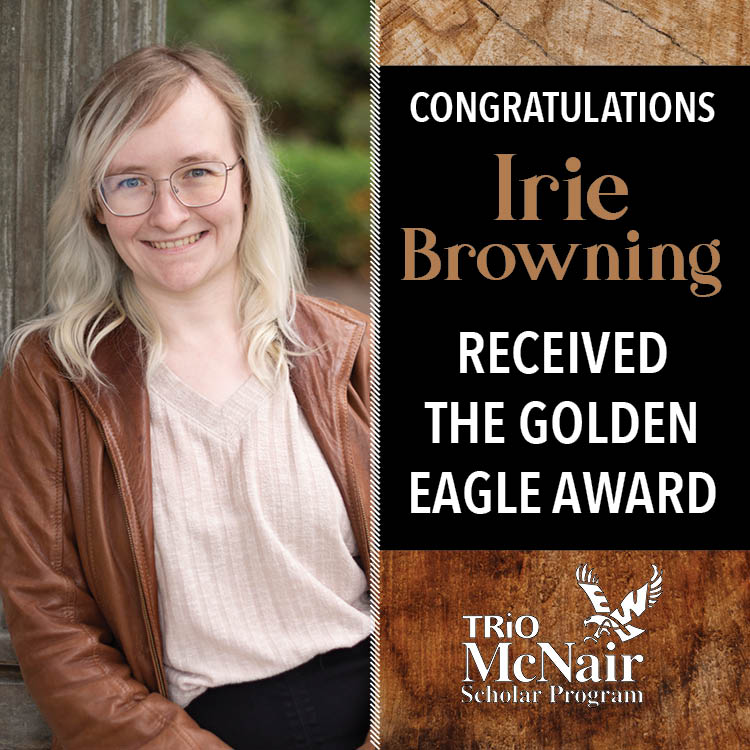
EWU McNair Scholar Irie Browning Receives the Golden Eagle Award
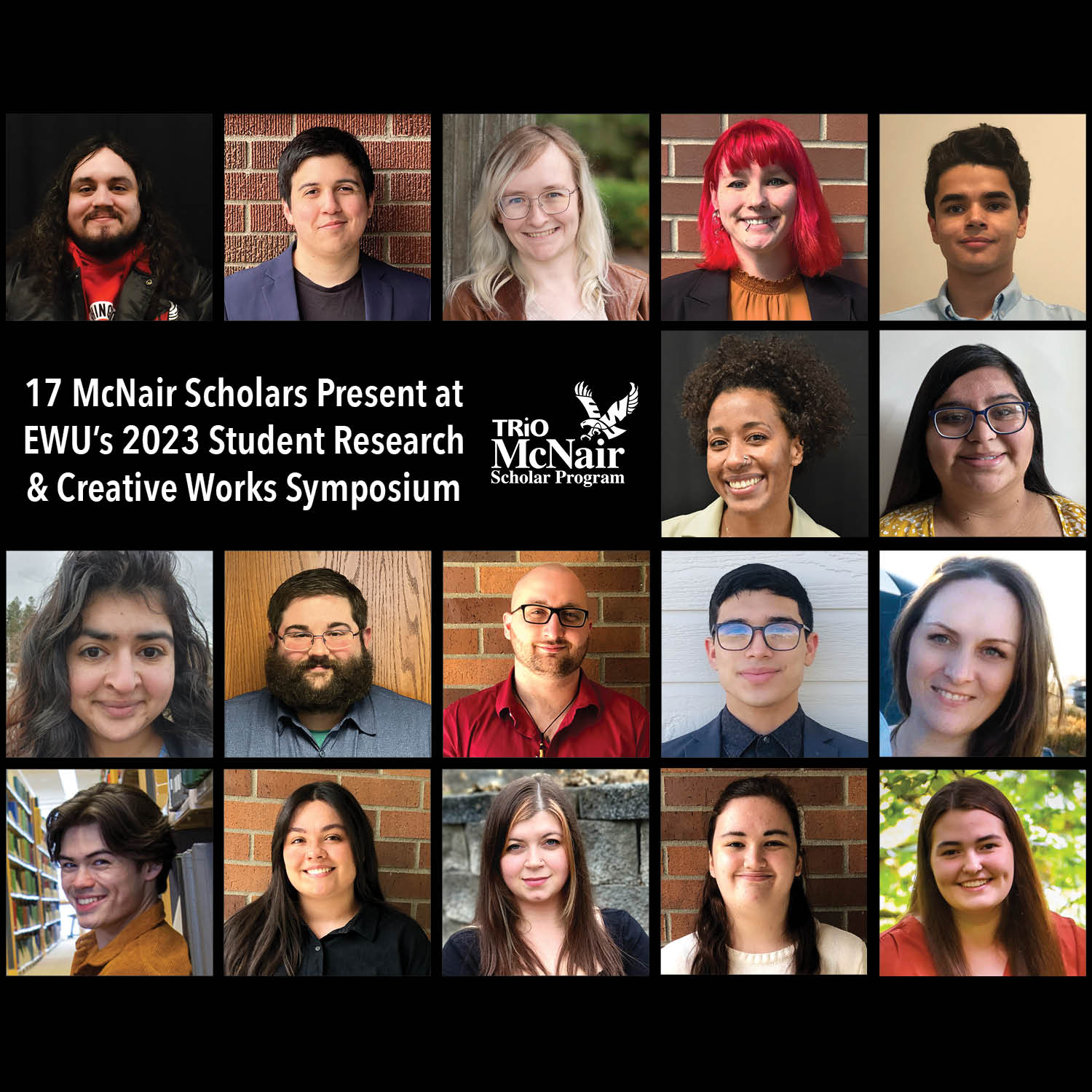
17 McNair Scholars Present at EWU’s 2023 Student Research & Creative Works Symposium
